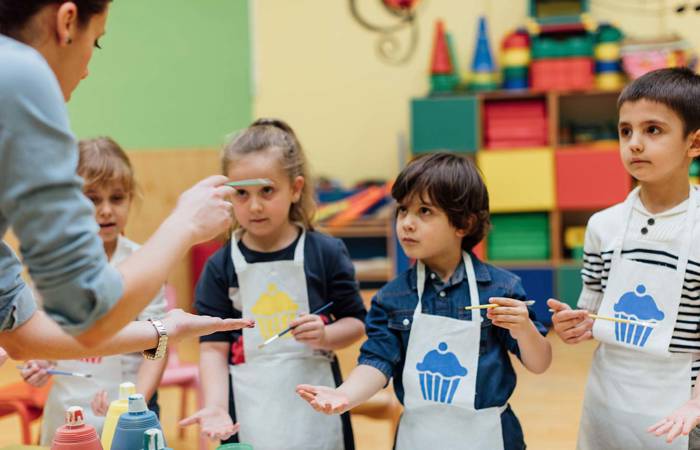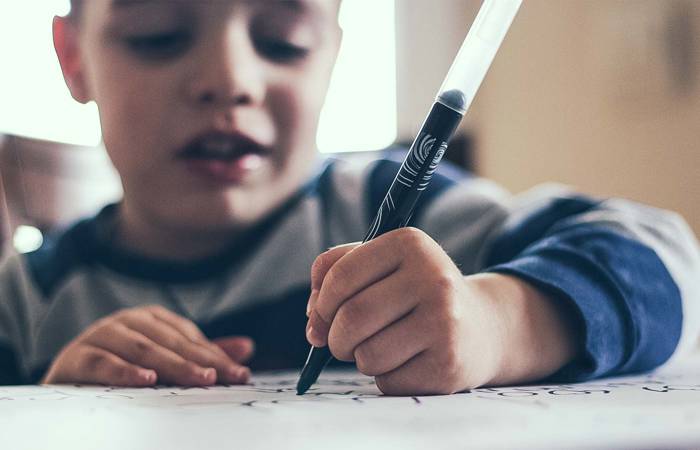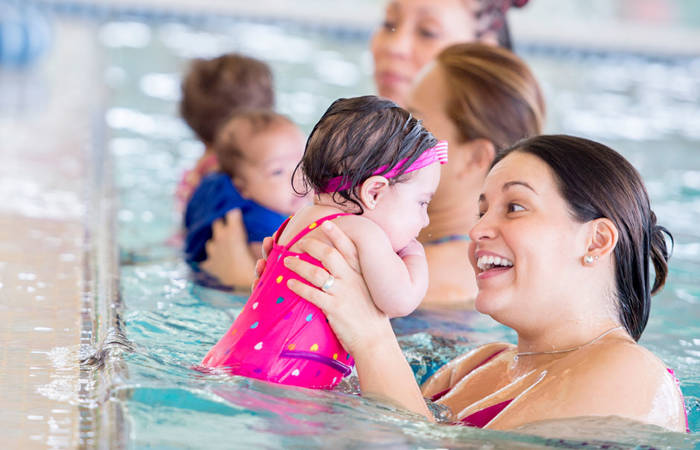Like what you see?
Sign up to receive more free parenting advice.
Thank you for subscribing to our newsletter!
Early Learning

Credit: iStock.com/monkeybusinessimages
When it comes to early childhood teaching practices and their impact on a child’s learning, Early Start at the University of Wollongong leads the world in research on a subject that, until recently, had not been extensively investigated.
The Fostering Effective Early Learning (FEEL) study – conducted in 2017 and reported in 2018 – evaluated whether an evidence-based professional learning program could improve the quality of practices among existing early childhood education and care (ECEC) educators and, by extension, children’s developmental outcomes.
Led by respected researcher Professor Iram Siraj from the University of Oxford, the FEEL study focused on the importance of quality education and how to strengthen it in ECEC settings.
Dr Elisabeth Duursma who was part of the FEEL study team in Wollongong says one of the main purposes of the study was to develop evidence-based professional development that would support and enhance the quality of pre-school educators’ practices, specifically the quality of the experiences (e.g. literacy, numeracy, early scientific concepts) and interactions with children.
“The professional development, Leadership for Learning, focused on areas such as characteristics of quality, children’s self-regulation, literacy, numeracy and leadership over the course of a full year. This involved a mix of face-to-face sessions and online support. In between the face-to-face sessions, educators were encouraged to ‘test out’ new knowledge, adapt it to their centre and discuss these experiences in subsequent sessions,” Dr Duursma says.
Previous research has established that the early years (birth to 5) are the most important time for learning and a quality early education has been linked to reduced rates of crime, boosted employability, better jobs and a higher income.
However, this study is one of the first to show evidence that we can improve quality in ECEC settings with our current workforce, and that doing so can have a positive impact on educators, children and their families.
"Educators found that engaging with professionals who were both enthusiastic and knowledgeable about how to achieve high quality environments, experiences and interactions for young children often renewed their sense of purpose, and provided clear guidance and support for how to take their practices even further,” Dr Duursma says.
Most importantly the results show that the improvements were good for children and their development of vital foundational skills.
“Our results showed that this also had a positive impact for children – with improvements that were as much as double what you would normally expect over this period of time.”
The study saw improvements in the quality of educators’ practice, which corresponded to positive growth in children’s language comprehension, numeracy and aspects of social-emotional development.
There was also an increased engagement and desire for learning among the children, with parents reporting improved vocabulary, more questioning and curiosity, and an increased passion for learning.
These findings highlight that professional development, when evidence-based and effective, has tremendous potential to enhance quality in ECEC and lift outcomes for children in a short time frame.
As a parent herself, Dr Duursma once lived in the US where she worked as a child care assessor. She believes that work put her in a unique position when she began working on the FEEL study.
“I think I’ve seen almost every child care centre in the Boston area and in Vermont. You see some great ones, and some awful ones – I’ve seen family day care in basements with no carpet on the floor, electric wiring everywhere, just awful things. But it did help me understand the importance of high-quality care and what that should look like,” Dr Duursma says.
It can be difficult for parents to identify high quality child care. Some things to look for when deciding on an early learning centre for your child include:
- whether the centre has a developmentally appropriate curriculum,
- staff to child ratios that allow educators to interact with individual children and small groups as needed (in order to leverage children's interests and play also as a learning opportunity),
- engagement with families to ensure that they are aware of current activities, aims and progress so these can be supported in the home.
“Parents can also look out for educators engaging children in ‘sustained shared thinking,’ where educators actively engage in children's learning while also extending their thinking through communication. It is important, though, that educators engage in responsive and warm interactions with children in order to support children's emotional wellbeing,” Dr Duursma says.
“For example, an educator can engage a child in sand play and ask 'I wonder what would happen if we add water?', wait for the child's response, extend on it and then work together on the content or problem.”
“Or an educator could ask a child questions such as 'How could we find out'? or 'Can you tell me more about this?'. All of these questions offer children an invitation to contribute to the conversation around a specific issue or problem where both adult and child contribute to the 'solution'. Research has shown that these type of warm, responsive and quality interactions are particularly beneficial to children's development.”
The study found the following characteristics of ECEC quality are critical for enhancing children’s development:
- Adult-child interaction that is responsive, affectionate and readily available
- Well-trained staff who are committed to their work with children
- A developmentally appropriate curriculum with educational content
- Ratios and group sizes that allow staff to interact appropriately with children
- Supervision that maintains consistency in the quality of care.
- Staff development that ensures continuity, stability and improving quality
- Facilities that are safe, sanitary and accessible to parents
- Working with families, sharing educational goals and supporting early home learning environments
Quality Early Learning
Quality early learning gives children the skills to set them up for the best start to their school education. A Melbourne Institute study found that children who attended preschool led by a Diploma or Degree qualified teacher scored how many points higher on their Year 3 NAPLAN Tests?






